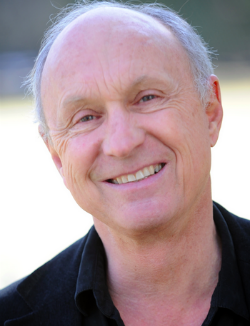
By GEORGE BEAUREGARD
How A.I. could have personalized my 2005 cancer journey
I don’t think I’m in the minority of Baby Boomer physicians when it comes to my curiosity and ambivalence about the progressing application of A.I. in medicine. But that curiosity isn’t just prospective, it’s retrospective too. In 2005, I became an outlier who perhaps needed something other than the standard of care for a disease.
During the fall of 2005, I first saw a single drop of blood hit the toilet water while I was urinating in my bathroom. After hitting the water, the rose-colored bead slowly sank, twisting and contorting, dissipating like a puff of smoke. The evidence was fleeting—gone in seconds. If I were a spectator rather than the source, I might have admired its visual artistry. There was no associated pain.
A single thought ran through my mind: Did I just pee blood? I thought I had perhaps imagined it.
I was 49 years old and didn’t have what were considered risk factors for kidney or bladder cancer: smoking, obesity, advanced age, high blood pressure, or exposures to cadmium, trichloroethylene, or herbicides. But I was adopted and lacked any knowledge whatsoever about my family history. Did I have a grim genealogy? What was perhaps significant, however, was that both of my adoptive parents had developed different types of urogenital cancer. That led me to speculate that environmental factors related to materials in our house and/or the land it sat on or around it had perhaps played a role.
I tried to dismiss any concerns, but the adage “painless hematuria is cancer until proven otherwise” ran through my mind in chyron-like fashion.
The episodes continued and worsened, prompting an ultrasound, the report of which read: “…a soft tissue density is seen in the base of the bladder toward the right. While this could represent thrombus, I cannot rule out a primary mucosal lesion. The lesion measures approximately 4 X 5 cm in diameter.”
I consulted a urologist colleague, who performed a cystoscopy. His comment about what he saw: “As you know, you have a mass in your bladder. I got a very good view of it. It’s pretty angry-looking, so I suspect it’s not benign. I tried to remove as much as I could. It would’ve been pretty risky to scrape deeper and risk puncturing your bladder. I know I didn’t get all of it.” A TURBT soon followed. The pathology showed a high-grade urothelial carcinoma extensively invading the lamina propria and muscularis propria. There was multifocal lymphovascular invasion, so I probably had a more advanced subgroup than the localized SEER stage.
At that time, the relative five-year survival rate for stage II muscle-invasive bladder cancer was about 45 percent.
Overwhelmingly, bladder cancer is an age-related malignancy. So, there I was, 49 years old, with a cancer whose median age of incidence—septuagenarians— was much older than mine. A WTF moment.
One that started me thinking about how much time I had left.
So, I had cancer, but in some ways felt cautiously optimistic. I had access to Boston-based academic centers and specialist colleagues who were willing to see me quickly, and good insurance.
But getting the diagnosis was only the beginning. I saw three expert urologists, each of whom recommended a radical cystectomy, small bowel resection, and construction of an orthotopic ileal neobladder. Convergence. Certainty for me.
Continue reading…

















